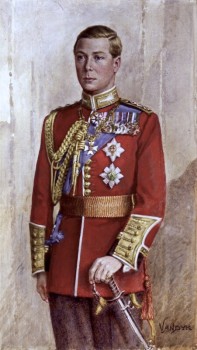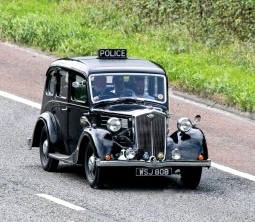Note: This is the third novel in the Sam Wyndham series. A Rising Man, the first novel of the series published in 2017, was WINNER of the CWA Historical Dagger Award and was SHORTLISTED for the Edgar Award for Best Novel.
“It’s not unusual to find a corpse in a funeral parlor. It’s just rare for them to walk in the door under their own steam. It was a riddle worth savouring, but I didn’t have the time, seeing as I was running for my life.” – Captain Sam Wyndham.
 It is almost Christmas in 1921, and Captain Sam Wyndham of the Imperial Police Force in Calcutta is running blindly across the rooftops of Chinatown at midnight, trying to avoid capture by his own men, who have no idea who they are chasing. An opium addict, as a result of his service in World War I and its aftermath, Sam has spent the evening fighting off his withdrawal symptoms by feeding his habit in an opium den. Then, inexplicably, the police attack. In his desperate efforts to escape, he climbs up through a hatch to a storage attic, where he finds a critically wounded Chinese man with ritualistic injuries – a man in such agony that he musters the last of his strength to try to kill Wyndham with a knife, before expiring. As the police work their way up through the building, Sam escapes across the roof, eventually hiding in a crawlspace, covered with blood.
It is almost Christmas in 1921, and Captain Sam Wyndham of the Imperial Police Force in Calcutta is running blindly across the rooftops of Chinatown at midnight, trying to avoid capture by his own men, who have no idea who they are chasing. An opium addict, as a result of his service in World War I and its aftermath, Sam has spent the evening fighting off his withdrawal symptoms by feeding his habit in an opium den. Then, inexplicably, the police attack. In his desperate efforts to escape, he climbs up through a hatch to a storage attic, where he finds a critically wounded Chinese man with ritualistic injuries – a man in such agony that he musters the last of his strength to try to kill Wyndham with a knife, before expiring. As the police work their way up through the building, Sam escapes across the roof, eventually hiding in a crawlspace, covered with blood.
With all this fast and flamboyant action stuffed into the first ten pages, readers may wonder, as they take a breath, if author Abir Mukherjee is creating a sensational, non-stop narrative to draw the reader into an action-for-its-own-sake story about exotic India and its unusual cultures. Mukherjee, however, has far bigger plans for this novel, both thematically and historically, and as the nonstop action begins, he simultaneously creates a vivid picture of his main character, Sam Wyndham, his problematic personal life, his fears, his role as a police officer trying to maintain control during the British raj in Calcutta, and his questions about why this raid was kept secret from him.
The next morning Wyndham has “little appetite for food,” and is determined to gain some insights into what created last night’s raid. When he picks up the morning newspaper, Englishman, he sees that Mahatma Gandhi’s most recent actions have left the country even closer to being “a powderkeg.” Urging his followers to rise up in a frenzy of “non-violent non-cooperation,” the Mahatma has promised that if they do so, he’ll deliver independence for India before the year is out. Appealing to ordinary folk, farmers, peasants, and factory workers from India’s thousands of towns and villages, he has encouraged them to “boycott British products, resign from government posts, and generally cause a bloody nuisance.” Most importantly, he has convinced them that they matter. The British, in response, have moved their capital from Calcutta to Delhi, and to help defuse the situation, they have decided to send the Prince of Wales (Edward Albert Christian George Andrew Patrick David), later Edward VIII, on a one-month tour to India.
Officers of the Imperial Police Force, including Captain Sam Wyndham and his Lieutenant, Surendranath Banerjee, better known as Surrender-not Banerjee, have been assigned to keep the peace in the lead-up to the Prince’s arrival. As Taggart, the commissioner of the military police, has said, “It’s one thing tackling a few hundred bomb-throwing terrorists, [but] dealing with a national mass movement led by a saint whose strategy is to smile at you before he orders his followers to sit down, block the streets, and pretend to pray, isn’t something [military intelligence] is particularly adept at dealing with…The whole thing’s damned unsporting.” The back-and-forth action and the emotional effects of the crisis on characters of all ethnic and racial groups develops fully and vibrantly in the ensuing action leading up to the arrival and public appearance of Prince Edward.
Ritualistic murders and some connections between the murder victims and various research organizations raise surprising questions about on-going British military experiments in the development of mustard gas, some canisters of which are now missing. It becomes critical that a combination of dedicated police groups find whoever has the mustard gas canisters before they can be utilized to create unimaginable horror at the planned demonstration. The broad picture of Calcutta at this point begins to become far more personal as the Imperial Police now realize they have only a few hours to catch the murderer and save those who care about law and order, whether they support the raj or work for independence.
Author Abir Mukherjee does a masterful job here, creating and maintaining the suspense and action while also allowing time to recreate the conflicting ideas and the sense of crisis which existed in colonial India in late 1921. By balancing scenes of personal crises for Wyndham and some of the other characters with a sense of urgency regarding the broad issues of colonialism and those who oppose it, he is able to keep the reader completely involved in action on foreign soil among people of different beliefs and cultures as they work their way to resolving some of the major conflicts. The desire not to rile the base supporting Mahatma Gandhi for fear of creating even bigger problems for those in power holds many echoes of the present. Ultimately, I was totally occupied, fascinated by the history, intrigued by the characters, and, best of all, consumed by the desire to see exactly how the crisis and confrontation here is resolved without another world war.
Photos. The author’s photo appears on https://www.pinterest.com/
The picture of Mahatma Gandhi is from https://www.nationalgeographic.org
The portrait of Crown Prince Edward may be found on https://www.npg.org.uk
The Wolseley Model 20 C8 Police car is seen on https://www.alamy.com
Raj Bhavan, formerly the Government House in Calcutta, is where Prince Edward stayed when he was in Calcutta. http://www.bbc.co.uk





